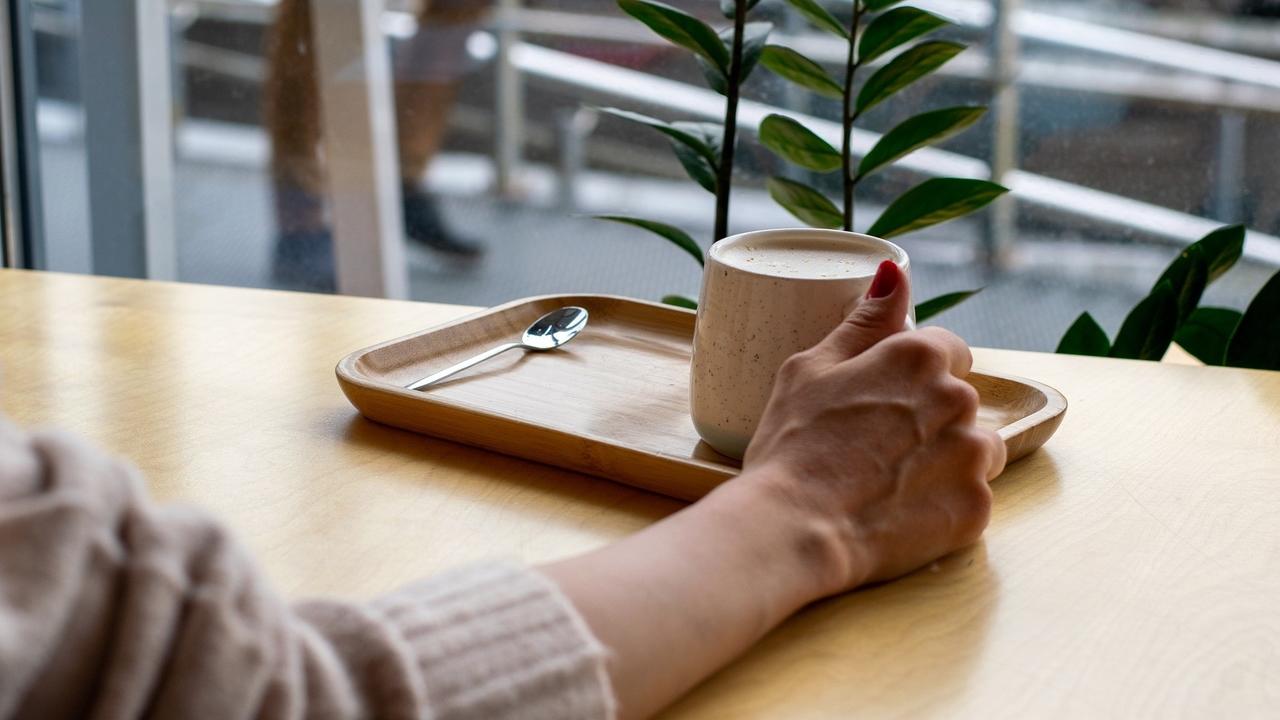Coffee: Friend Or Foe?

Written by Joe G. Santos
In a perfect world, our bodies would exude energy as soon as we open our eyes in the morning. Starting our day that way would be a sure-fire way to guarantee that all our daily goals are accomplished by the end of the night. Still, much to our disappointment, this is not how most of our days go. In the hope of achieving that, modern society has turned to a daily cup (or cups) of coffee. This magical "bean juice" has become a staple of our world's diet. But as people have rightfully become more cautious of what goes into their body, questions about coffee's possible health benefits and drawbacks have risen.
When it comes to nutrition, it can be challenging to answer questions about certain foods' health impacts due to how drastically the human body varies from person to person. With that in mind, the most important thing to consider when researching whether a particular food is good or bad for you is to closely monitor the relationship you have with the food in question. Without a doubt, that can be somewhat challenging for an untrained individual to keep track of for themselves. However, to make it a little easier, we have invited Patricia Torsani, a Brazilian nutritionist and mindset coach with over 18 years of experience, to answer some questions about coffee. In this interview, we have asked for some information that will help you understand what to look for if you are trying to decide whether coffee should still be a part of your diet and some possible alternatives.
Is coffee bad for your health?
As we all know, caffeine is one of the main reasons why people drink coffee as part of their morning routines. Still, like any psychoactive substance, caffeine can be addictive, and this unhealthy relationship with the drink drives people to consider removing coffee from their diets. However, other than having the potential to become addictive, is caffeine detrimental to your health?
Patricia Torsani: The primary way we distinguish "good" from "bad" for our health is our consumption rate. Coffee by itself is not a poison that we need to avoid at all costs. There are many benefits to drinking coffee, but we can experience this plant's negative side if we overdo it. With this distinction made, the question should be: "What are the consequences of drinking too much coffee?"
The main concern about an unhealthy intake of coffee is the interaction caffeine has with our calcium levels. Recent studies have demonstrated that routine coffee intake can affect how calcium is distributed throughout our body. Coffee can instigate calcium waste through our urine and blood and fails to deliver the mineral to our bones that need it the most. A modest consumption should not be the case for concerns. Still, it can be aggravating for people who already have an inadequate supply of calcium in their diet and people who suffer from bone conditions such as osteoporosis. This concern is especially common in some imbalanced plant-based diets that failed to substitute calcium-rich dairy products for plant alternatives adequately. Plants such as winged beans that provide around 26% of your daily calcium intake per cup can be an excellent option to replenish our calcium supplies. Still, it is recommended that you go for a check-up to see if your mineral levels are satisfactory before you go trying to fill your body up with calcium. Additionally, if you experience any issues with your bones—which also includes your teeth—outside of any significant diagnosis, it would be smart to attempt to cut down on coffee for about a month and see if you feel any differences. But to summarize my answer, no coffee itself is not bad for your health, given everything is running smoothly and we are not drinking it excessively.

Are there benefits to drinking coffee?
Understanding the effects of excessive coffee intake on an individual is vital if we try to make conscious dietary choices. Still, if we find the perfect balance, we sure could see some benefits to drinking coffee. Is a boost in energy all coffee has to offer, or are we overlooking some of this plant's additional benefits?
Patricia Torsani: Coffee is rich in polyphenols. Polyphenols are micronutrients derived from plants that help our bodies in various areas. The most noticeable effects of coffee's polyphenols are its oxidation inhibitory properties. As an antioxidant, coffee prevents the disruption of our cells by free radicals. You can think of free radicals as rogue "incomplete" atoms. When present in our bodies, they seek to bond with other atoms and molecules to "complete" itself. This process can damage healthy cells and cause cancer, diabetes, and even Alzheimer's and minor conditions such as inflammation. Coffee can help punctuate this process by giving up some of its electrons to "complete" these free radicals, so they do not use material from our healthy cells to do so. Although coffee can significantly benefit our bodies that way, cranberries, carrots, garlic, and many other vegetables are also rich sources of antioxidants. Still, it is always recommended to have multiple sources, and coffee can be an excellent one at that.
How do we prevent caffeine addiction?
We have considered the physical pros and cons of coffee, but as we know, our carnal forms are only a third of the body-mind-spirit triad. If we are to take a holistic approach to these questions, we should also observe our coffee consumption through these lenses. Although coffee's spiritual role is hard to explain in a few lines, we can still start with the mind.
In the fast-paced and goal-oriented society we live in today, coffee addiction seems to harmonize significantly with these communal traits. With more and more people being aware of the psychoactive properties of coffee and consequently realizing their addiction issues, many of these individuals have a problem quitting or cutting down coffee with the excuse that they need it to get their day started. Are there any actionable ways to reduce the impulse to drink coffee in the morning without having a much harder time waking up?
Patricia Torsani: Before we address issues with needing coffee to wake up in the morning, we have to look at why we developed this pattern in the first place. To do so, we have to look at our sleeping habits and understand how the sleep-wake cycle works.
If we have an ideally harmonious circadian rhythm, our body allocates melatonin to our brains during the night. This hormone then opens the way for cortisol to be distributed in the morning, causing us to wake up. However, many things can disrupt our circadian rhythm. Being exposed to blue light from electronic devices is the most commonly known way this can happen, but even something as small as not getting enough sunlight in the morning can cause an imbalance. With that awareness, we can reduce our exposure to blue light devices at sundown and open up all the windows in the morning to allow sunlight in. If residing in a country where the season can limit sunlight, there are timed blue-light bulbs you can purchase to help with that. You can set a timer to the time you are aiming to wake up to solve this problem. Additionally, studies show that being barefoot in nature can also help regulate your circadian rhythm.
After exercising these lifestyle alterations, we can then address needing to consume caffeine in the morning. Sometimes the issue is not the impulse but the habits that allow for this impulse to be justifiable in the first place. If we fix our sleep traditions, there would be a smaller need to boost energy in the morning through external sources. That way, we can become more casual coffee consumers.
What can we drink instead of coffee?
Since we talked about all the benefits that coffee has, removing it from our diets would also deprive us of all the excellent properties we discussed earlier. Especially for those who have been avid coffee drinkers, quitting coffee would undoubtedly leave their body feeling like something is missing. That being said, are there any coffee substitutes that we should consider?
Patricia Torsani: The most obvious replacement for coffee is tea. It gives you the option of going decaf or caffeinated, and there are so many different types of tea that you'll indeed find one that fits your taste. Especially if we consider green tea or matcha a replacement, you get both benefits of caffeine and antioxidants extremely bioavailable in the beverage. One other thing that is good to keep in mind is the length of time you steep your tea will dictate how much caffeine goes in your cup. With that, you can quickly gauge how much caffeine you are ingesting. If you are still trying to avoid caffeine, a nice and warm morning beverage is golden milk. This beverage comes from Ayurvedic knowledge. It features turmeric as its main ingredient, being a suitable replacement for coffee's antioxidant properties. On top of that, it also has excellent anti-inflammatory and anti-carcinogenic properties, and it is cheap and easy to make.
The Verdict
Coffee does not seem to be the devil some people make it out to be. Of course, there are some risks to overconsumption, but that is no news for most of us. The secret to reaping all the blessings coffee can provide without dealing with the side effects is a good dose of temperance. Like always, there are a few exceptions to that rule, such as people who suffer from bone conditions, due to coffee's impact on our calcium levels, but it still poses no significant threat to healthy individuals. Yet, even in those cases where coffee is not recommended, there are great substitutes available for all of us who like a nice warm beverage in the morning. With all that considered, coffee is neither a friend nor a foe. It all depends on how you use it.

About the author: Joe G. Santos
Writer, Thinker, and Visionary. Through writing, I aim to clarify the most pressing questions about human behavior and world issues, pointing to practical resolutions in an entertaining and accessible manner. You can find my work and contact me at https://www.joegwriting.com/.
A Mystery School For The New Age...
In late 2019, Spirit Science launched a one-of-a-kind educational platform ~ Spirit Mysteries ~ as an online space for self-mastery. It has grown rapidly, and now contains hundreds of hours of courses and thousands of students from across the world.
If you are ready to take your spirituality to the next level, click below to get started.



